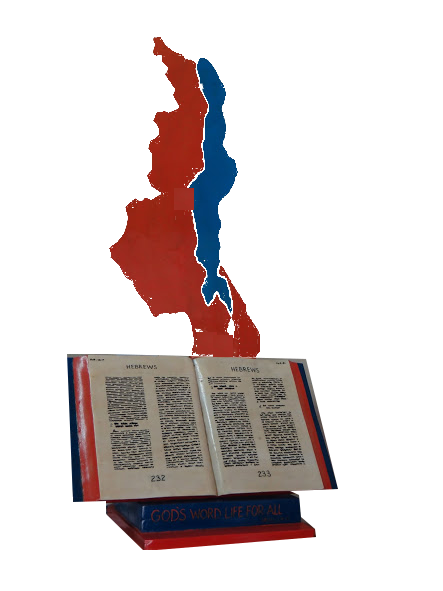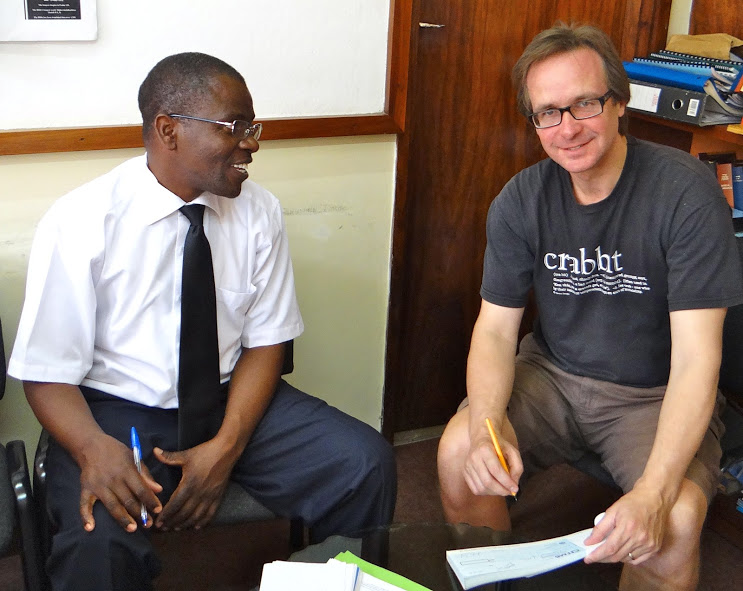CHICHEWA COURSES
 |
10 Lesson Beginners Chichewa CourseWe have an online 10-lesson Beginners Chichewa course. The course is delived by a professional and very experienced Chichewa language teacher. He has many years experience of teaching Chichewa both to foreigners living in Malawi and in private schools. The individual lessons come with 10 videos to help with the pronounciation and practicing and with sets of notes for each lesson. Each lesson therefore has three elements (i) face to face online personal tuition, (ii) prepared notes and (iii) videos to help practice the sounds. |
Beginners Course Description
Starting with lessons familiarising the student with the pronunciation of the sounds of the language and basic greetings the course moves on to sentence structure and grammar. Throughout the course there is support for pronunciation practice with the videos which provide a reminder of the words and phrases used. The notes provide a clear structure so that during the lesson the student can focus on what is being learned and at the end have clearly constructed notes - rather than an incomplete jumble of scribbles.
Sign up by writing to us at info[at]esafrican.com
Here is a sample video lesson and its written notes. The summary of the 10 lessons of the course is here.
The course provides the building blocks for nouns, pronouns, verbs and adverbs which giving the student the flexibility to learn about areas of particular use to them.
If you are interested in prices and in taking this course please write to us here: info[at]esafrican.com
Intermediate and Advanced lessons
We can take you from an introduction to the languages through to advanced studies. You can join a scheduled class or tailor the tuition according to your own requirements and interests. Group classes, one-on-one lessons, learning through music, intensive courses, Chichewa for specific purposes (e.g. medical work, church) and combining language with culture can all be arranged. We also can provide lessons in other local languages. Please don't hesitate to get in touch by writing to info[at]esafrican.com if you have ideas.
 "Moni, Muli Bwanji?"
"Moni, Muli Bwanji?"A little knowledge of Chichewa goes a long way
English is the official language in Malawi and people are warm and friendly to visitors. For this reason many people fail to engage with Malawians in their own language or according to social norms in Malawi. The culture in Malawi is 'relational' and the language is a great indicator of that. A little knowledge of the language and how society works goes a very long way in Malawi.
Many Malawians are keen to learn about and engage with 'western cultural norms' and so for those reasons are usually reluctant to correct cultural mistakes that visitors may make. The problem with this is that a visitor can seem somewhat 'other' or even rude. While Malawians understand that no offence is intended, over time differences in approach can begin to stretch the patience and endurance of those Malawians you are engaging with. Often, little problems can build slowly over time only to explode unexpectedly.
We can help you start off well and build good relationships over time with our language, culture and translation services.

Cultural Considerations associated with Language
Greetings and easy essentials
A little knowledge of the local language goes a lot further in Malawi than in most other countries. There are two main reasons for this. Firstly, greetings are disproportionally important in Malawi compared to elsewhere. When you know how to greet people you will transform first impressions and you will find yourself on a much stronger footing than most expats. Secondly, Malawians have exceptionally low expectations regarding what outsiders can say and understand in their language. Showing even a little bit of knowlege brings friendly smiles all round and is the perfect start to interactions (even if most of the rest of the conversation continues in English).
Translation
We can provide translators for most scenarios, locations and languages. It is perfectly possible for us to arrange for you to be accompanied by a translator - whether that be Chichewa or another language such as Timbuka, Chiyao or even another smaller language spoken in Malawi. Please contact us in advance with your travel or working plans.
Mediation services
People from the same culture and speaking the same language can fall out over misunderstandings. How much more is this the case with people from very different backgrounds with different experiences of life and different beliefs – not to mention language and culture barriers? Sometimes the right person with the right presence and personality can overcome these misunderstandings. We have the right people if you find yourself in need of mediation.
If you just need the most important words and phrases (and to hear how they sound) then please click on this link to a ‘Visitors Chichewa’ page.
I wrote a blog post with some random thoughts on Chichewa which might help to give a picture of the language.
and now for something different...
A selection of RIDDLES of the NYANJA PEOPLE
Source: A selection of RIDDLES of the NYANJA PEOPLE: Originally Collected and Annotated by Ernest Gray, Source: Bantu Studies, Volume 13, 1939
| Region | Group | Type | Riddle | English Translation | Answer(s) | Notes |
|---|---|---|---|---|---|---|
| Zomba District | Nyanja | Natural Phenomena | Chikhadakhala ndi mpeni tikadatha tonse. | Had it possessed a knife we should all have been finished (i.e., killed). | Mdima (Darkness) | |
| Zomba District | Nyanja | Natural Phenomena | Komwe ayang’ana ndi konko. | Where it looks is there. (It always goes in the same direction.) | Madzi. (Water or stream) | Konko – shortened form of kamweko = to that place there. |
| Ntcheu District | Ngoni | Natural Phenomena | Kanthu kosagona tulo. | Something which does not sleep. | Madzi. (Water or stream) | kanthu -from the root -nthu (person) ka- is the singular diminutive prefix, so that kanthu is literally "some little thing” but it is used as the broader equivalent of cinthu- “a” thing, or “some” thing. |
| Natural Phenomena | Kanthu kosamangika n’ciani? | What is something which cannot be bound? | madzi or Mpepo (wind) or utsi (smoke) | |||
| Zomba District | Nyanja | Natural Phenomena | Njira imeneyo ukapanda mubvi sungaipite. | You cannot go that way unless you have an arrow. | Nyanja (Bwato pamodzi ndi mponda). The Lake (i.e., a boat and a punting pole.) | |
| Ntcheu District | Ngoni | Natural Phenomena | Ndacera msampha wanga kalangali kapita. | I have set my trap – the “kalangali” has (already) gone. | Mphepo sigwidwa mu msampha. The wind is not caught in a trap. | Kalangali is not found in Scott or Hetherwick dictionary, it may be an Ngoni word that fell out of use. |
| Zomba District | Nyanja | Natural Phenomena | Sioneka! | Invisible! | Mphepo. (The wind) | |
| Ntcheu District | Ngoni | Natural Phenomena | Angakuphere bambo wako ncofunikabe. | Even though it kills your father it is still indispensable. | Moto. (Fire) Somethimes Madzi | |
| Zomba District | Natural Phenomena | Dziwe lalikuru alinkusamba mbali mokha. | A large pool, they are washing in the shallows (lit. at the edge) only. | Moto. Fire | Dziwe = a pool where the river widens out into a pool or a lake. The meaning seems to be that as you must not venture too far into the pool (crocodiles, or inability to swim) so you must not get too far near to the fire. | |
| Natural Phenomena | Kanthu kosaoneka komwe kadagwera. | Something whose source cannot be seen. | Thambo.(A cloud). | Kadagwera = kugwera = to come from. | ||
| Ntcheu District Gowa School | Ngoni | Natural Phenomena | Njobvu yafera ku Blantyre, kuno mafupa okha gobede gobede. | The elephant has died at Blantyre, here the bones only fall with a hollow sound. | Nkhungulupsya. (Burnt-grass particles blown about by the wind after a bush fire) | Nkhungulupsya = Kkungu (a mist or clous) +lupsya (burnt bush, the black motes of burnt grass that fly about during the bushfire) Gobede-Gobede (or gwebede-gwebede) |